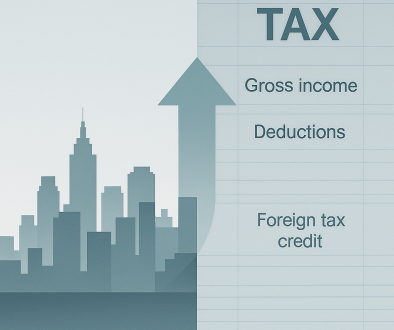A new decision from the Immigration Authority regarding touristic residence permit extensions was published on December 2, 2019 at the Immigration Authority’s website. According to this decision and the subsequent announcement, the Authority is changing its review process for applications of touristic residence permit extensions, starting January 1, 2020. With the new review process, the Authority declared that it will no longer accept any touristic residence permit extension applications (certain countries are exempt from this new process, full list shown below), unless the applicants can provide a justified reason for extension other than touristic purposes. Therefore, as from January 1, 2020, it will no longer be possible for foreigners to extend their touristic residence permits based on touristic purposes.
The decision came as a shock and caused quite a lot of panic and confusion among touristic residence permit holders. The main reason for this is the timing of the decision, as the Immigration Authority only provided a 29-day notice before the new review process takes effect, providing very little time for permit holders to process the information and look for alternative methods of obtaining another residence permit (other than touristic permits). The Immigration Authority justifies this decision by stating that the touristic permit scheme was being exploited by foreigners, where a significant percentage of foreigners were applying for touristic residence permits and then applying for continuous extensions to stay in Turkey indefinitely and to work illegally.
However, as mentioned above, this new review process and restriction of extension for touristic permits does not apply to all foreigners, as certain countries are exempted from the new process. According to the decision of the Immigration Authority, the new rule shall not be applicable to citizens of countries members to the European Union and the OECD, along with Russian and Chinese citizens, and foreigners from these countries may continue to apply for an extension of touristic permit after January 1, 2020. The full list of the exempted nationalities and countries are noted below:
Full List of Exempted Countries
| Austria | Australia | Belgium |
| Bulgaria | Canada | Chile |
| China | Croatia | Cyprus |
| Czechia | Denmark | Estonia |
| Finland | France | Germany |
| Greece | Hungary | Iceland |
| Ireland | Israel | Italy |
| Japan | Korea | Latvia |
| Lithuania | Luxembourg | Malta |
| Mexico | Netherlands | New Zealand |
| Poland | Portugal | Romania |
| Russia | Slovakia | Slovenia |
| Spain | Sweden | Switzerland |
| United Kingdom | United States |
Alternative Methods for Extension of Stay
With the new review process starting from January 1, 2020, foreigners who are not citizens of one of the countries noted in the above table, shall not be able to extend their touristic residence permits unless they can provide some other justifiable reason for extension. Therefore, it is possible for a foreigner to still apply for an extension of his/her residence permit by changing the type of permit from touristic to one of the other permit types (such as permit based on real-estate acquisition). Another option is to obtain work permit from the Ministry of Labor, which automatically provides residence permits. For detailed information, please review our article on work permit applications here. Establishing a company and making business investments may also be an option to extend stay, and it can even help the applicant with work permit applications (there are certain exemptions provided for work permit applications of company shareholders). You can obtain detailed information regarding investments and incorporation in Turkey from here.
As mentioned above, although the new review system and restrictions on extensions of touristic permits came as a shock, there are various alternative methods foreigners can pursue to extend their stay in Turkey. However, these procedures are generally quite complex, and it is recommended that they seek professional help from trusted experts regarding these applications, to avoid any penalties and/or even deportation and a ban of re-entry.
The content of this article is intended to provide a general guide to the subject matter. Specialist advice should be sought about your specific circumstances.




